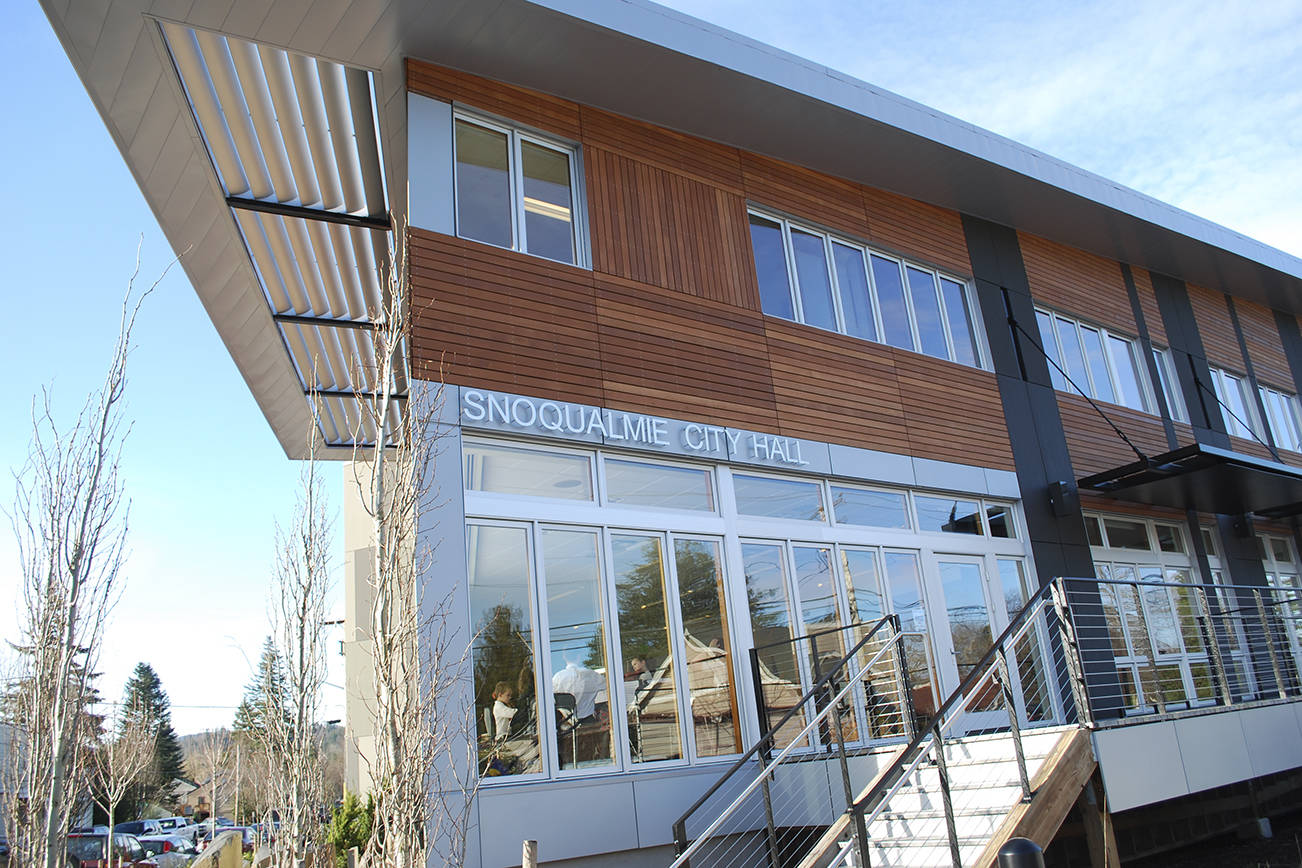The Salish Lodge expansion is slated to be finished by 2022, and the project is expected to bring thousands of people into the Snoqualmie area every year. But with large developments comes higher property taxes, so how will that affect residents?
The Salish Lodge expansion is being undertaken by the Muckleshoot Tribe which could file for a land trust, exempting them from paying local property taxes once the project is completed. To address that exemption, the city required the tribe through the development agreement to accept requirements which would ensure that even if they filed for tax exemption, the city would still receive payments instead of taxes.
Snoqualmie city administrator Bob Larson said if the Muckleshoot Tribe chooses to file for a land trust they would be required to wait for one year after finishing construction, allowing time for the county Assessor to appraise how it affected property taxes within the city. Payments instead of tax would then be levied on the commercial portions of the development, including the hotel, spa and associated structures. The development agreement specifies that the Muckleshoot Tribe will not file to exempt its residential developments.
“They agreed that they’d wait one full year after full build out, and if they decided to take it into a trust where they wouldn’t have to pay property taxes that they would pay an equivalent amount,” Larson said.
The Record submitted a records request to the U.S. Department of the Interior which showed that the tribe had not yet applied for a land trust within the city of Snoqualmie as of March 5. If the Muckleshoot were to file for a land trust in the future, property taxes from the lodge would be rolled onto other parcels in the city.
That concerns Snoqualmie resident Monica Lowney who said there is no guarantee residents won’t end up absorbing the costs of the development through higher property taxes.
“The problem is the people within our city don’t trust our city to handle money properly,” she said. “I feel the city will still charge money on property taxes to make up for the difference.”
The city council could, once the lodge is developed, vote to use revenue in lieu of property tax from the lodge to lower levee rates and offset increased county property taxes. However, that would require action from the council after 2023 at the earliest. All currently sitting city council members will be up for election by 2021 at the latest, meaning the decision of how to use revenue from the lodge will be up to a future city council, and perhaps an entirely different one.
If the Muckleshoot successfully files for a land trust it will be required to make an annual payment instead of property taxes which will be calculated based on a prorated portion of the development, covering the commercial property taxes which would have been received by the city. The payment will increase by 3 percent every year and compounded annually, according to the development agreement. Additionally, the Muckleshoot agreed to pay $350,000 for the city’s purchasing of fire equipment capable of providing service.
“It’s actually a pretty good amount of money for us,” Larson said.
The annual adjustment of the payment is higher than what the city is allowed to collect on other properties in the city. Under Washington state law, cities can only increase local taxes by 1 percent each year. A 3-percent increase would afford the city more money. However, the ultimate amount of taxes which filing for a land trust could push to residents of Snoqualmie is also not yet know, and it will be contingent on the year of assessment after the project is completed. The Muckleshoot Tribe also could choose to not file for a land trust, in which case the Salish Lodge would be taxed at normal rates.
Lowney was also concerned that the development was allowed to proceed under environmental impact statements which are nearly 20 years old, as well as older traffic studies which were undertaken before the Snoqualmie Ridge development was created.
“The population has grown by more than 10,000 people,” Lowney said.
However, growth and development from both the Ridge and the Salish Lodge were accounted for in the studies, Larson said. These studies are required to be updated as conditions change, but as long as predictions for things like traffic, impact to the natural environment and population figures fall within the scope of the original studies, new ones are not required. For example, Larson said the traffic projections within the original study and current updates are still within 98 percent concurrency.
“This is part of the Growth Management Act — it’s not done willy-nilly,” Larson said. “Those things are all taken into consideration.”
Traffic mitigation has already taken place through the Tokul Road roundabout, with the Muckleshoot Tribe footing a significant portion of the bill, along with grants from the state and some investment from the city of Snoqualmie which are additionally outlined in the development agreement.
The finished lodge would have restaurant and bar space for about 570 people, a total of 175 single family housing units, a 250 room hotel and conference center, a fitness center and a retail center.



